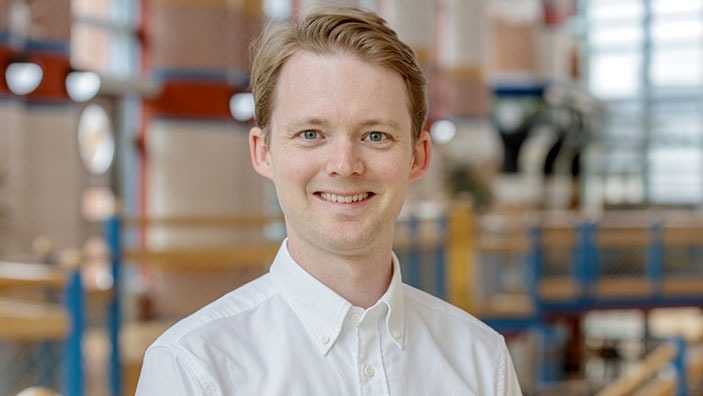High levels of air pollution can harm performance of teams, which are vital for solving complex problems such as developing clean energy technologies and vaccines, and this could harm economic development in highly polluted emerging economies, says a new study co-authored at Cambridge Judge Business School.
High air pollution can slow corporate teams competing in escape rooms
The study used data from 15,000 live escape-room games in London. It estimated based on the data and the study’s equations that for about 3,500 teams that participated for team-building exercises (usually from a corporate background) that on high-pollution days the escape teams could take up to 5% longer to solve a sequence of non-routine analytical tasks of the collaborative type seen in a modern workplace.
The authors say that the mostly corporate team-building subsample may be more representative of the workplace effect than the full sample (which includes birthday parties and other leisure activities); there was no significant effect of pollution on young teams under the age of 16, the subgroup least reflecting the modern work environment.
Why impact of polluted air on teams poses economic concern

These negative results “only occur at high levels of air pollution, which are however commonplace in many developing countries. As team efforts predominantly drive innovation, high levels of air pollution may significantly hamper economic development,” says the study published this month in the Journal of Economic Psychology.
Co-authors of the study include Paul Lohmann of the El-Erian Institute of Behavioural Economics and Policy at Cambridge Judge Business School, and Andreas Kontoleon of the Department of Land Economy at the University of Cambridge.
“Breakthroughs in science and other fields require teams to work together to combine knowledge and solve complex problems, so it’s important to understand external factors than can affect team performance,” says co-author Paul Lohmann.
“Our findings that air pollution has a sizable and statistically significant negative effect on teams undertaking complex tasks has implications for workplaces all over the world, but particularly in emerging economies that have high air pollution levels.”
Escape rooms provide ideal way to analyse team performance in workplace
The research uses data from escape room games between 2018 and 2022 in which team members need to solve a series of puzzles and use the information to figure out a way to escape the room before time runs out, usually 60 minutes. The teams ranged from 2 to 6 and the study is based on how many minutes it took them to complete the task, as this reflects team effectiveness in working together.
“Escape rooms provide an ideal setting to study team performance on non-routine, cognitive tasks emblematic of the modern work environment because they require a high level of creativity, collaboration, and communication between team members to complete the game,” the study says.
Study finds 4 common air pollutants negatively impact collective problem solving
The research studies the effect of the four most common air pollutants – carbon monoxide (CO), sulphur dioxide (SO2), nitrogen dioxide (NO2) and particulate matter smaller than 2.5 micrometers in diameter (PM 2.5).
Pollution data were obtained from 16 monitoring stations in greater London maintained by the Automatic Urban and Rural Network and provided by the Department for Environment Food, and Rural Affairs. Weather data comes from the UK’s Met Office.
The study reveals that all 4 pollutants have a significant negative impact on team performance. Interestingly, these effects occur at levels much lower than the current World Health Organization (WHO) Air Quality Guidelines for 2 pollutants studied (CO and SO2).
Research has implications for team innovation in emerging economies
The study concludes with comment on the potential implication on all workplaces, but particularly in emerging economies.
“Our results have implications for all settings that require team-based non-routine analytical and interpersonal work, which characterises large parts of the modern work environment. Many low- and middle-income economies face much higher levels of pollution, which could possibly be a drag on economic development and poverty alleviation.
“As these countries intend to increase the share of service-sector jobs that entail team innovation in their economies, reducing air pollution may be an important contextual factor that can affect innovation capacity, which is critical for economic development.”
The study – entitled “High levels of air pollution reduce team performance” – is co-authored by Paul Lohmann of Cambridge Judge Business School, Benedict Probst of ETH Zurich, Elisabeth Gsottbauer of the London School of Economics and Political Science, and Andreas Kontoleon of the Department of Land Economy at the University of Cambridge.
Previous research investigates how air quality may impact anti-social behaviour
Paul has also previously studied air pollution in a different context to examine how it affects anti-social behaviour, well-being and ethics. The research based on university students in Beijing randomly assigned participants to be surveyed on either high or low pollution days, while a subset of individuals in the high-pollution subset also received a ‘pollution alert’ to explore whether such warnings promote more protective behaviour.
The research found no statistically significant effect on anti-social behaviour nor any statistically significant difference in protective behaviour such as mask-wearing and limiting time outdoors between people who received a pollution alert on high-pollution days and those who did not. The latter may be explained in the Beijing context (where particle pollution is often clearly visible in the form of smog) by the fact that “participants had a relatively accurate perception of air pollution and may take protective behaviour accordingly, regardless of having received an alert message or not,” the research said.
“Our results suggest that previous significant findings on the association between air pollution and (violent) crime rates may be due to contextual factors which do not apply to our sample population of university students,” the research says. “For instance, social and contextual factors such as poverty or financial hardship might be more predominant in a population likely to commit crimes than in our sample of students.”
Individuals’ psychological experience of air pollution can impact decision-making, in addition to the more extensively researched physiological pathways.
Yet the study did find an effect among those who perceived air pollution to be extremely severe on high-pollution days with certain types of unethical actions in the form of ‘taking behaviour’ and reduced levels of altruism in a game setting. Specifically, such individuals take more money from other game-players when there is a risk of being detected, “which more accurately represents real-world criminal behaviour which contains an element of risk.
“These findings underscore that individuals’ psychological experience of air pollution can impact decision-making, in addition to the more extensively researched physiological pathways.”
Featured academic
Paul Lohmann
Research Associate, El-Erian Institute of Behavioural Economics and Policy
Featured research
Lohmann, P.M., Probst, B., Gsottbauer, E. and Kontoleon, A. (2024) “High levels of air pollution reduce team performance.” Journal of Economic Psychology
Lohmann, P.M., Gsottbauer, E., You, J. and Kontoleon, A. (2023) “Air pollution and anti-social behaviour: evidence from a randomised lab-in-the-field experiment.” Social Science and Medicine





